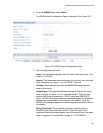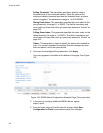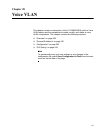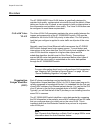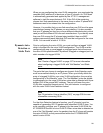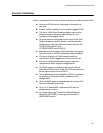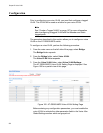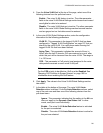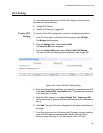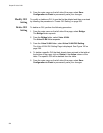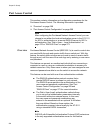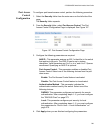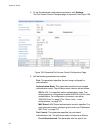
AT-GS950/48PS Switch Web Interface User’s Guide
263
4. From the Voice VLAN field at the top of the page, select one of the
following choices from the pull-down menu:
Enable - The voice VLAN feature is active. The other parameter
fields in the voice VLAN Global Settings section become active and
are eligible for data to be entered.
Disable - The voice VLAN feature is inactive. The other parameter
fields in the voice VLAN Global Settings section become inactive
and are greyed out so that data cannot be entered.
5. In the voice VLAN Global Settings section, enter the configuration
information for the following parameters:
VLAN ID - This parameter is the tagged VLAN ID that has been
configured in “Tagged VLAN Configuration” on page 157 that you
intend for the voice VLAN. It is a pull-down menu showing the
tagged VLAN IDs that have been defined.
Aging Time - This parameter indicates the amount of time, in
hours, after the last IP phone's OUI was received on a port, after
which this port will be removed from the voice VLAN. The range is
1 to 120 hours.
COS - This parameter is CoS priority level assigned to the voice
data packets received on each voice VLAN port.
Note
For the COS priority to be effective, QoS must be Enabled. See
“Mapping CoS Priorities to Egress Queues” on page 180 for
information about enabling the QoS feature.
6. Click Apply. The values in the Voice VLAN Global Settings section
take effect.
7. In the table at the bottom of the page, The voice VLAN Auto-
Detection status is defined. From the Auto-Detection column, select
one of the port rows and then one of the following choices from the
pull-down menu:
Ignore - This parameter indicates that the setting in the All row
does not apply to the Dynamic Vlan Status field. In other
words, each port is set individually.
Enable - The voice VLAN Auto-Detection feature is activated
for the port row selected.
Disable - The voice VLAN Auto-Detection feature is active for
the port row selected.



